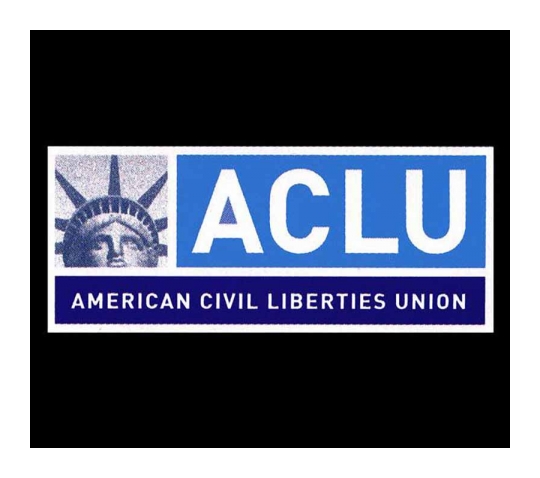ACLU foresees 2016: LGBT rights versus religious exemptions

by Sara Ritsch
Staff Writer
An ACLU press briefing was held today in order to address the landscape of what’s to come for the LGBT community in 2016 regarding religious exemptions. In many states across the US, liberty claims about religious rights have been the response by those who oppose equality.
James Esseks, LGBT Project Director of the American Civil Liberties Union, was the first to address the issue of religious exemptions.
“The LGBT movement is doing well nationwide and there has been a growing focus on nondiscrimination…Religious freedom is central to American identity and the Constitution, but that doesn’t give anyone the right to harm other people. That’s discrimination,” he said.
Esseks reflected upon 1964, when Congress was debating civil rights, saying that the opposition attempted to claim religious exemption but Congress said no.
“This is a phenomenon and a live issue in the LGBT and equality movement right now. What helps us is that it has illustrated the continuation of the effort to stop LGBT equality laws,” he said, regarding the fact that Congress has shot down the aforementioned attempt for religious exemption time and time again. “Most Americans don’t think religious exemption to equality laws are appropriate.”
In fact, as he explained, 62 percent of the public is opposed to small businesses refusing service to LGBT individuals. And, according to a September 2015 poll held by The Washington Post, 74 percent of Americans believe that when conflict arises the need to treat everyone equally is more important than religious exemption. Finally, Esseks stated that 63 percent of Americans supported requiring Kim Davis to carry out her job despite her religious beliefs.
Eunice Rho, who represents the Advocacy and Policy Counsel for the American Civil Liberties Union, then said that 2015 showed many successes. Ninety bills increased the cessation of religious discrimination except for Arkansas, Indiana and Michigan. She said that the ACLU is preparing for an aggressive push from the opposition.
“We expect a wide range of this [opposition],” she said, marking the potential threat of religious restoration acts that could undermine the rights of the LGBT community.
This includes shielding someone who wants to discriminate upon marital status, government benefits, contracts and licenses; refusing to treat existing marriages as valid; allowing religiously affiliated adoption and foster agencies to refuse LGBT parents “in the best interest of the child”; allowing for-profit organizations to refuse service or employment due to orientation; and requiring public colleges and universities to provide funding to students who do not conform to non-discrimination policies.
All of these things, Rho said, may be anticipated for 2016.
Ria Tabacco Mar, LGBT Project Staff Attorney for the American Civil Liberties Union, then brought up these LGBT issues in litigation law.
“Kim Davis is an outlier,” she said, for those who are considering turning people away because of “who they are and who they love.”
“Equality is winning. Courts reject religious exemption with the same argument and same rejection made in the past,” Mar said. It has become more and more understood that “all Americans, including gay and trans, are created fairly and equally.”
Mar went on to say that Kim Davis’ actions halted four couples from obtaining their marriage licenses – two gay and two straight – and that “it’s not fair for couples to have to bear that burden.”
The adjusted marriage licenses must be reviewed to make sure all couples can marry “without stigma and without doubt,” she said.
For further speculation about 2016, the ACLU representatives explained that the serious activity we are seeing in litigation cases about transgender people – transgender students in particular – indicates surplus targeting in the coming year.
“It’s not clear yet whether the religious exemption issue will overlap with transgender issues. They may merge, but at the moment I’m seeing more that there are two tools or mechanisms that opponents are using to defeat LGBT equality laws. One is the fight for [religious] exemption; one is exploiting the country’s lack of understanding about who trans people are. [This is] all simply in order to stop the advancement of LGBT equality,” the ACLU representative said.
The Gayly asked about any upcoming suspicions that marriage equality will be threatened in 2016 if Republicans take the White House.
In response, Esseks said, “There may be a whole lot of noise, but no change. Maybe not even a lot of noise. The reason for this is that this was a decision made by the Supreme Court…It’s not clear that this issue would get back to the Court. It’s not easy to make that happen.
“Clearly there are a lot of people not comfortable, but it’s a reality that this country is digesting. I think people look around and they see more people getting married, lots of love in the world, and it’s not hurting anybody. The public really thinks this is fine. We don’t need these exemptions, nor is there a problem that means solving.”
These righteous cases put forth by LGBT individuals have met a majority of support in the nation, whereas the cases for religious exemption have been naught, save for a few. Although the push for religious liberty will persist, ACLU foresees the progress we have seen in 2015 most likely continuing into 2016, with resolutions for open cases and new issues being brought to light.
The Gayly - 12/16/2015 @ 3:31 p.m. CST





